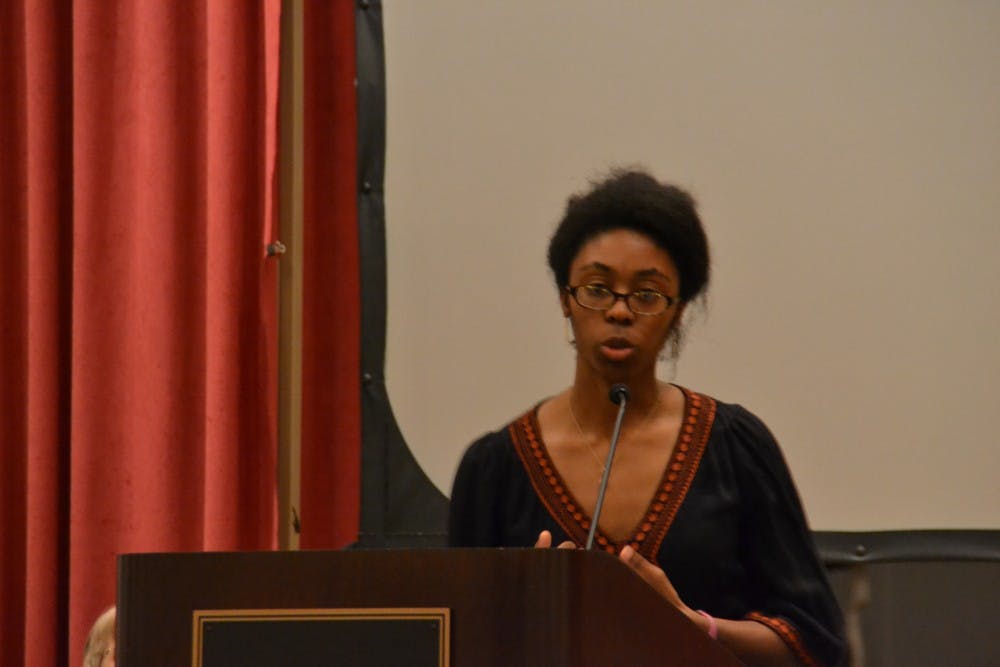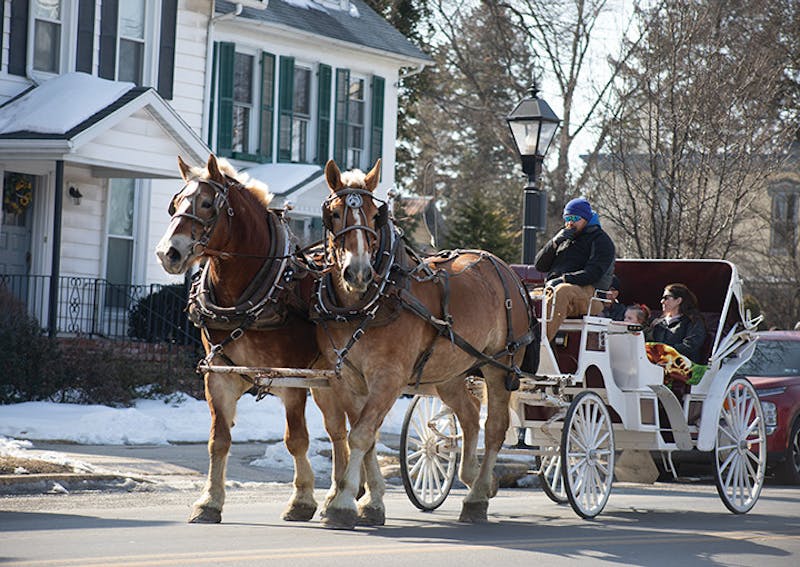Just two months after the United States and China ratified the nations’ unilateral climate change accord, The Paris Agreement, a Shippensburg University environment class hosted its bi-annual climate change debate.
SU professor Kay Williams and her Problems of the Atmospheric Environment graduate class hosted the debate on Wednesday in SU’s Old Main Chapel.
The debate pitted two teams against each other, with each team litigating its approach to coping with the effects of climate change.
The two teams, which were comprised of three SU students per panel, made their points while refuting the other teams’ claims in a four-round debate.
SU students Lauren Weaver, Thomas Bond and team captain Kurtis Walker formed one team, which argued that adaptation is the best approach to handling climate change.
Holly St. Clair, Eric Peregord and team captain Deidra Bryant formed the other team, arguing that mitigation is a better approach.
Round 1 began with both teams presenting their main arguments.
Team mitigation used its time to explain how addressing climate change at the source is the only permanent solution to the issue.
Team adaptation used its time in round one explaining why the timely nature of an adaptive approach is necessary to combatting climate change.
“Spend the money now and adapt — save money later and reduce damages in the future,” Walker said.
The second round opened with the mitigation team refuting the adaptation team’s arguments. St. Clair argued that adaptive approaches will only help extremely localized areas.
Once it was its turn, the adaptation team spent its Round 2 litigation time debating the mitigation team’s arguments, citing the opposing team’s arguments as untimely and cost-ineffective.
Round 3 allowed both teams the opportunity to review their key arguments and summarize their final points.
In the fourth and final round, Bryant and Walker each took a turn addressing debategoers’ persuasive speeches.
Following Round 4, the judges, SU geology professors Sean Cornell and Wesley Foltz, deliberated while the two rival teams came to an agreement.
“I really think that there needs to be a balance between mitigation and adaptation,” Peregord said. “Without one, the other is pretty much incomplete.”
Weaver of the adaptation team agreed with Peregord.
“They have to coincide — you can’t have one without the other,” Weaver said.
Debate moderator Williams agreed, citing the need for both long-term and short-term solutions.
“We have to try to reduce our carbon footprint,” Williams said. “We need to try to stop [climate change] from getting worse while also dealing with the problems we already have.”
Weaver added that she found it difficult to completely disagree with the mitigation team’s points.
The judges ultimately decided that the adaptation team won the debate.



The Slate welcomes thoughtful discussion on all of our stories, but please keep comments civil and on-topic. Read our full guidelines here.